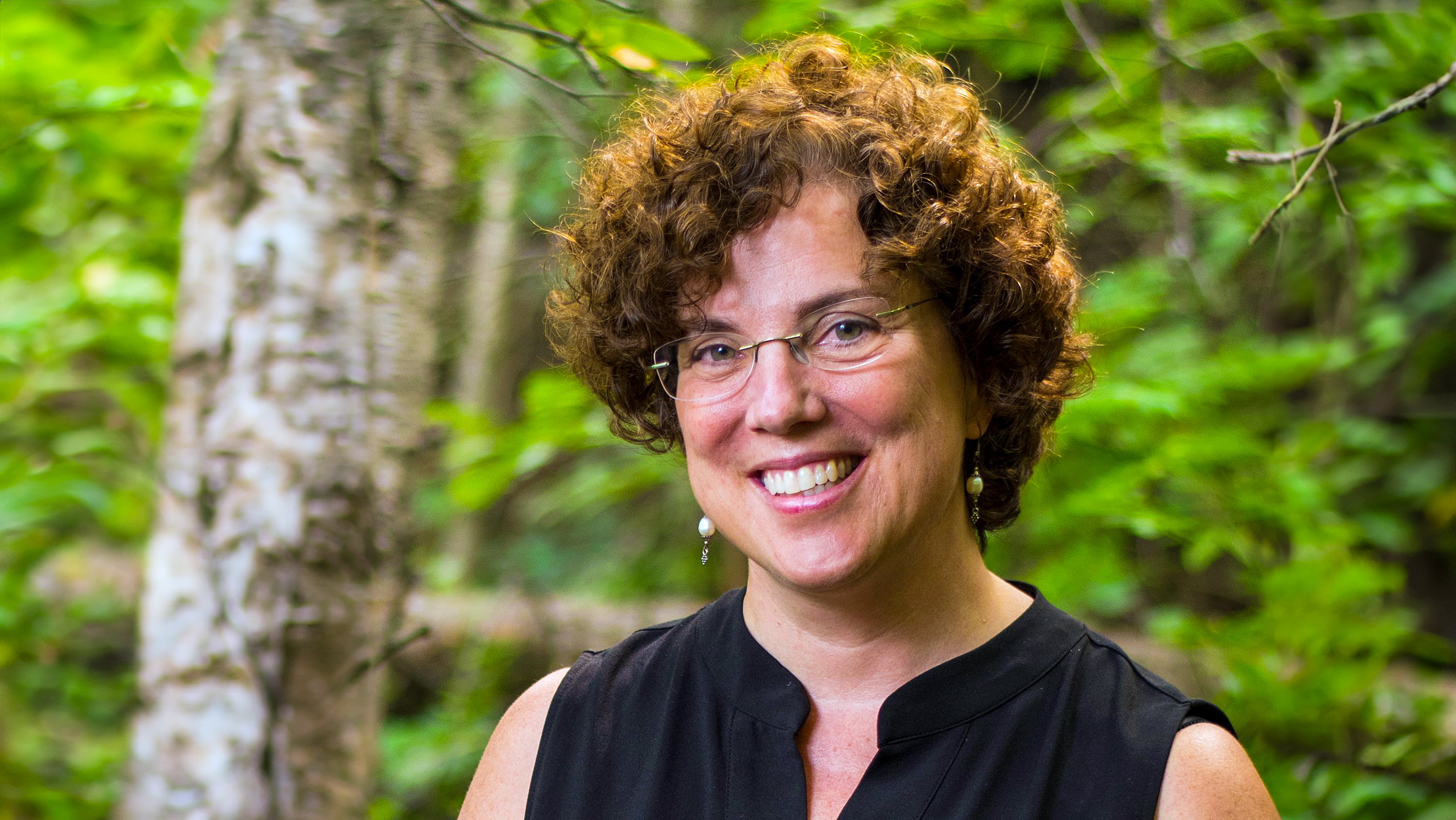For most North American city-dwellers, it’s not unusual anymore to spot, or even confront, coyotes, skunks, raccoons or other wildlife.
What people might not know is how to react, or even what to think about sharing their streets, yards and green spaces with their wild neighbours.
It’s an issue that University of Alberta wildlife biologist Colleen Cassady St. Clair has helped address over the course of her academic career, by building more public awareness about the behaviour of animals that live with increasing ease in urban areas, and what people can do to peacefully co-exist with them.
“There’s a tremendous need for more knowledge about how these other species could co-exist with humans, without trying to drive them out of cities,” says St. Clair, a professor in the Faculty of Science.
Her dedication to transforming that relationship has earned her a 2024 Community Scholar Award, one of three U of A Community Connections Awards. The Community Scholar Award recognizes faculty members who excel and bring their scholarship into the community, and are committed to translating their area of expertise to everyday citizens.
St. Clair and her lab focus on human-wildlife conflict, and they have reached hundreds of thousands of people to date, contributing to public knowledge of urban biodiversity, positioning people to educate others, and facilitating better co-existence with city-dwelling wildlife.
“If we can replace humans’ fear and irritation with a relationship that is more enjoyable and appreciative of wildlife, we can enhance the experience for both,” says St. Clair.
Most urbanites live and work indoors, and “that has consequences for mental and physical health,” she says. “If we can increase the sense that we can co-exist with wildlife in cities, that provides a gateway for people to care more about biodiversity, which is important. Every aspect of our lives is dependent on the ecosystems around us.”
St. Clair’s years of work building awareness about wildlife-human interactions include delivering dozens of public presentations, creating several community-oriented web pages, publishing more than 110 scientific papers and giving numerous media interviews.
Her research also includes more than 20 studies focused specifically on urban coyotes, the largest carnivore that is commonly found in North American cities.
Since 2009, she and her students have collaborated with the City of Edmonton on the Edmonton Urban Coyote Project to inform the city’s wildlife management strategies.
Her team’s research has provided information to help residents avoid attracting coyotes into conflict situations, for example, by identifying compost heaps as unhealthy food sources that make the animals sick and increase their conflict-prone behaviour.
They’ve also worked with wildlife professionals and trained residents to treat bold coyotes aggressively, increasing wariness so that conflict is less likely to develop, she notes. “This is better for coyotes as they will be less likely to be lethally managed, and because they’re less dependent on scavenging human food, so more likely to have healthier diets.”
St. Clair’s extensive community work also includes involvement with Wild Edmonton, a collaborative project of the U of A, the City of Edmonton and the Urban Wildlife Information Network. The initiative monitors wildlife movement across urban areas to help inform the city’s land-use decisions, minimize barriers and reduce the likelihood of animal-vehicle collisions.
In addition, she worked with Edmonton’s Bissell Centre to help at-risk people avoid exposure to a tapeworm carried by coyotes, and has provided other programming ranging from family fun nights to nature seminars for service clubs.
Involving citizens in research
Above and beyond sharing her expertise with the public, St. Clair has worked to actively involve citizens in the research she and her students are doing. From collecting coyote feces samples to reporting on the animal’s bold behaviour, volunteers contribute hundreds of hours of time and thousands of data points, she says.
“It gives us much more capacity to do our work, and it’s great to have members of the public as co-generators of new knowledge.”
Working closely with communities, municipalities and the public to conduct research, is a concept St. Clair also tries to pass along to her students.
“I find there are mutual benefits,” she says. “My students learn skills in engagement, teaching and organizing the work of others, while volunteers learn about the methods we, as researchers, use to answer questions, and they get to feel like their time in nature is helping in some way. And it makes our work more relevant. I couldn’t provide the kind of information wildlife managers need without co-designing that work with them.”
Receiving a Community Scholar Award is gratifying, St. Clair adds.
“I'm really grateful to the university, the City of Edmonton, and the community for supporting and valuing the research we've done together, because that kind of work makes a really big tent for everyone.”
|
The University of Alberta Community Connections Awards recognize the incredible contributions made by faculty, staff or students, who have dedicated their time, energy and resources to making our community a better place. We recognize people who work alone or in groups, in our communities near or far from campus. Colleen Cassady St. Clair will be honoured with her Community Scholar Award during a public ceremony from noon to 1 p.m. Monday, May 13 at Edmonton City Hall. RSVP to attend. |
